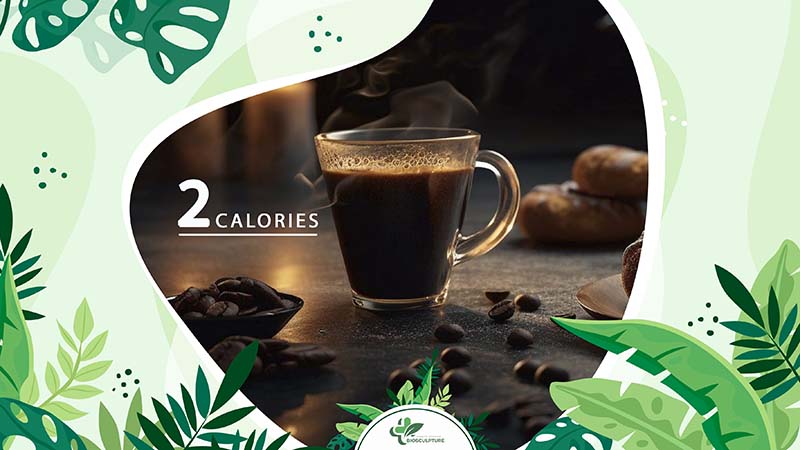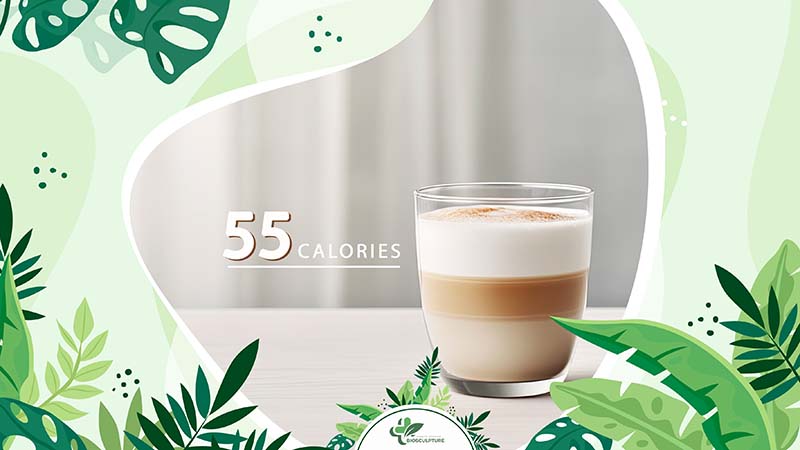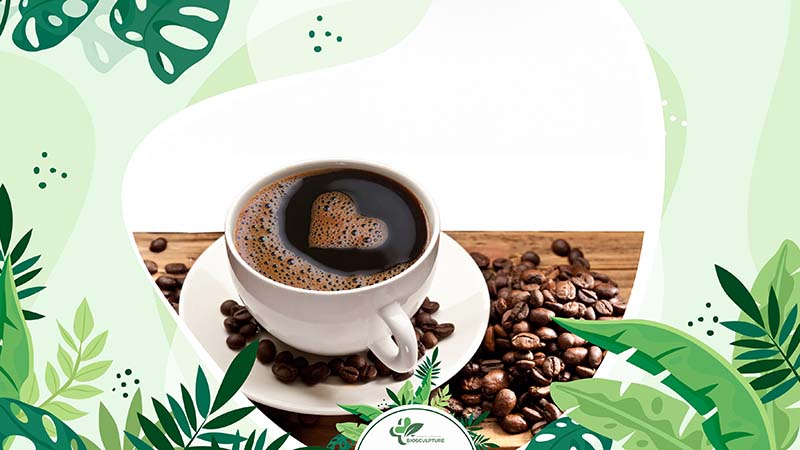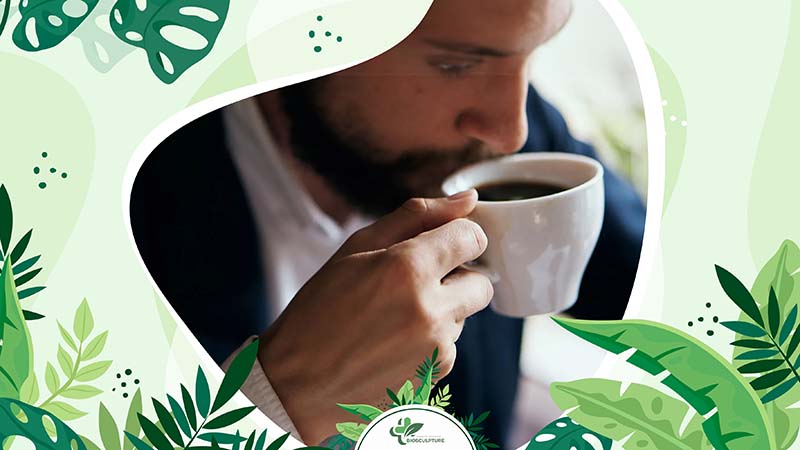Coffee, known for its caffeine kick, is a go-to beverage worldwide when pondering the question, ‘How many calories are in coffee?’ It perks you up without piling on the calories. But once you start jazzing it up with milk, sugar, or other flavors, those calories start to add up. This article, featured on Biosculpture, breaks down the calorie content of your favorite coffee concoctions and encourages readers to delve deeper into understanding the nutritional aspects of their favorite beverages.

1. How Many Calories Are in Black Coffee?
A cup of plain black coffee contains approximately 2 calories. This implies that the bulk of calories in coffee come from additional ingredients such as sugars, syrups, and creamers. For instance, a simple home-brewed black coffee typically has fewer calories than an espresso over milk with added toppings. Even when black coffee is served iced, as in the case of cold brew, the calorie count remains at a mere 2 calories per average cup before any milk or sweeteners are added.

2. Caloric Content of a Cup of Coffee with Milk
A cup of coffee with milk typically ranges from approximately 6 to 55 calories, depending on the type of milk used and any added sugar. Compared to plain black coffee’s 2 calories, the addition of milk significantly affects the caloric content.
Here’s a breakdown:
- Full-fat Milk: Adding full-fat milk increases the calorie count to around 23 calories per cup.
- Semi-skimmed Milk: Semi-skimmed milk adds approximately 17 calories.
- Skimmed Milk: Skimmed milk adds around 14 calories.
- Soy Milk: Opting for soy milk adds about 24 calories.
Additionally, adding sugar further boosts the calorie count:
- One Teaspoon of Sugar: Adding one teaspoon of sugar to coffee with milk contributes around 16 extra calories.
- Two Teaspoons of Sugar: Two teaspoons of sugar add roughly 32 additional calories.
Therefore, a cup of coffee with full-fat milk and two teaspoons of sugar totals about 55 calories, while a cup with semi-skimmed milk and one teaspoon of sugar contains approximately 33 calories.

3. Common Mistakes When Drinking Coffee
Drinking coffee is a cherished daily ritual for many, but even seasoned coffee enthusiasts can inadvertently stumble into habits that affect their enjoyment or health. Here are some prevalent mistakes to be mindful of:
- Overconsumption: Downing excessive cups of coffee can trigger jitteriness, anxiety, heart palpitations, and disrupt sleep patterns. It’s advisable to cap your coffee intake at around 3-4 cups per day.
- Late Day Coffee: Consuming coffee late in the day can linger in your system for up to 8 hours, potentially disrupting your sleep. Aim to sip your last cup by early afternoon, particularly if you’re sensitive to caffeine.
- Sugar and Cream Overload: While tempting, drowning your coffee in sugar and cream turns it into a calorie-laden treat, potentially leading to weight gain and health issues if consumed excessively.
- Opting for Low-Quality Coffee: The quality of your coffee significantly impacts its taste and health benefits. Lower-quality coffee may taste more bitter and contain more impurities. Opt for high-quality, freshly roasted beans for a superior coffee experience.
- Neglecting Coffee Maker Hygiene: Coffee makers can become breeding grounds for mold and bacteria if not cleaned regularly, posing health risks and compromising the taste of your brew.
- Empty Stomach Sips: For some, drinking coffee on an empty stomach can trigger digestive issues, acid reflux, or jitters. It’s often wiser to enjoy your coffee with or after a meal.
- Ignoring Personal Caffeine Sensitivity: Everyone’s caffeine tolerance varies. While some can handle multiple cups without issue, others might feel jittery after just one. Listen to your body and adjust your intake accordingly.
- Hydration and Coffee: While coffee may stimulate alertness, it also acts as a diuretic, potentially leading to increased urination and dehydration if not balanced with adequate water intake.
- Pre-Ground Pitfall: Coffee loses its flavor and aroma shortly after being ground. For the freshest taste, grind your coffee beans just before brewing.
By being mindful of these common missteps, you can enhance your coffee experience and safeguard your health.

4. The Best Time to Drink Coffee
The optimal time to enjoy your cup of coffee is typically between 9:30 a.m. and 11 a.m., according to sleep experts. During this mid-to-late morning window, cortisol levels, the body’s stress hormone, tend to be lower. Cortisol peaks within 30 to 45 minutes of waking up and can impact the immune system. Drinking coffee during this period may help prevent immunity to caffeine buildup over time.
Cortisol operates on a rhythm tied to your own sleep cycle, influencing sleep quality, mood, and energy levels. However, it’s crucial to steer clear of caffeine within eight hours of bedtime to minimize the risk of sleep disruption. By adhering to these guidelines, you can maximize the benefits of your coffee consumption while safeguarding your sleep hygiene.

5. Conclusion
Plain coffee, known for its remarkably low calorie content, embodies the essence of how many calories are in coffee. However, numerous popular coffee concoctions incorporate high-calorie add-ons like milk, creamer, and sugar.
Moderate consumption of these beverages isn’t problematic, but excessive indulgence can lead to a surplus of calories. Given the interest in how many calories are in coffee, it’s essential to be mindful of your intake to maintain a balanced diet and overall health.


